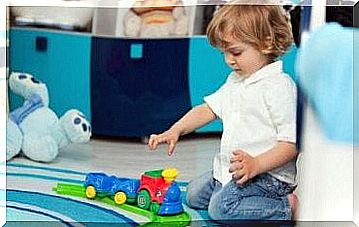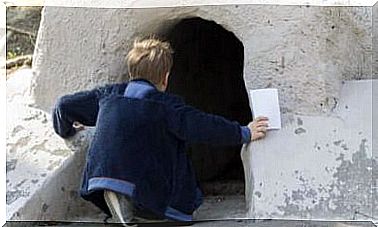5 Signs Of Revolt In Adolescence: What Solutions? – Being Parents

Most parents perceive their children’s entry into adolescence somewhat suddenly. We know in advance when this happens.
I t is not uncommon, however we confound or that we do not perceive the first signs of rebellion in adolescence.
These signs do not always constitute a direct questioning of our authority. Subtle emotional changes will begin to appear. This ranges from the search for independence and, in general, to the psychological and physical changes characteristic of this age.
It should be noted that the arrival of adolescence is not the same for everyone. This can appear in some children at eight or nine years old. In others, this maturation process will occur later, up to the age of thirteen.
It is the start of a process of physical, hormonal and psychological transformation. This will end around the age of 19.
In order to somewhat help you see if your child might be entering this stage, we walk you through five signs of revolt in adolescence and how you can deal with them.
Signs of rebellion in adolescence
As we discussed earlier, the signs of rebellion in adolescence do not always manifest in the form of clearly defiant behavior.
They can present themselves in a more discreet way in a process that will end with the autonomy and the construction of the personality that the adolescent will have as an adult. Some of these signs of revolt are:
-
Want to be alone
This is one of the main signs of revolt among adolescents. It stems from a need for privacy, an aspect of great importance at this stage of life.
Many parents commonly mistake this behavior for a symptom of a problem in their son’s life . It is never too much to check that all is well.
However, the best we can do if this behavior becomes habitual and there is no particular mood, is to try to give our child some space.
Obviously, solitude must be granted to a reasonable extent. If this behavior isolates him from his friendships, interferes with his education or eating habits, we may think that this is behavior that really needs our attention.

-
Sudden changes in mood
It is one of the most common signs of revolt. Mood changes come from hormonal changes. These make young people more emotionally sensitive.
In this sense, a teenager may respond indifferently to our signs of affection. He can get annoyed with an innocent joke. Or also to be depressed for things as mundane as a black dot in the face.
It is important to know how to handle these situations so that we can educate these attitudes. On the other hand, we must not be permissive in the face of any mistake made and we must maintain our authority at home.
“Adolescence is society’s license to combine physical maturity with psychological irresponsibility”.
-Terri Apter- -
Relative loss of communication
Many children remain very attached to their children until they reach adolescence. At this stage, it may seem strange to us that our child has stopped telling us about his day at school. Or that he has new friends that we don’t know.
The fact that young people talk less with us and even less about the new friendships they form at this stage, is quite normal.
Granted, many parents can feel a little jealous. It is nevertheless something healthy for the emotional training of our child. This will allow the creation of its own identity.

Obviously, young people are much more likely to fall into many social issues during adolescence – substance use, delinquency or unwanted pregnancies, among others.Faced with the suspicion of this type of problem, it is reasonable to intervene to avoid the effect of a bad influence.
-
To perceive that they are ashamed of our presence
Unlike other signs of rebellion, this one affects parents more. This is also what we understand the least.
During this phase, adolescents are in full search of their independence and their identity as a mature person. They thus abandon infantile behaviors or attachment to parents.
Our child will show a relative refusal of our presence when he is with his circle of friends.
We must understand that this attitude does not imply that our child does not love us any more, does not respect us any more and even less that he hates us. It is simply the typical reflex of insecurity. This makes us uncomfortable by not achieving this level of maturity.
-
Say no”
It is probably the most characteristic trait of early adolescence, as well as one of the first signs of rebellion. Our child will become more independent in all his decisions.
Thus, before he accompanied us without saying anything to a family meal. He may now be reluctant to participate in events that seem boring to him.
We can allow the previous situation. The key, as with everything, is to be reasonable. If our teenage child doesn’t want to finish his plate, there’s no need to force him like we did when he was little.
Nonetheless, if our child does not want to go to school because it bothers them or evokes something of the sort, we will need to exercise our authority as parents and set our priorities.









